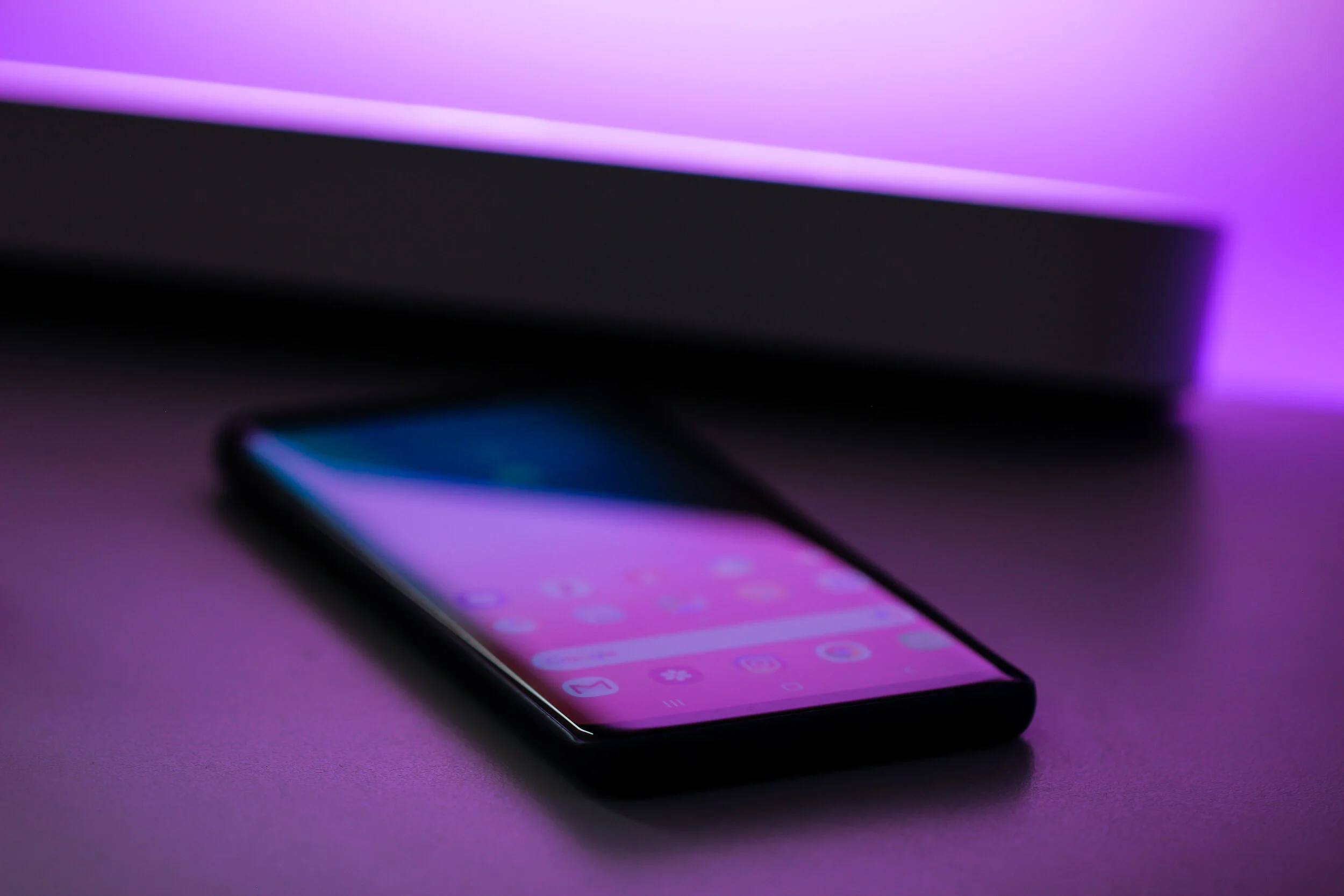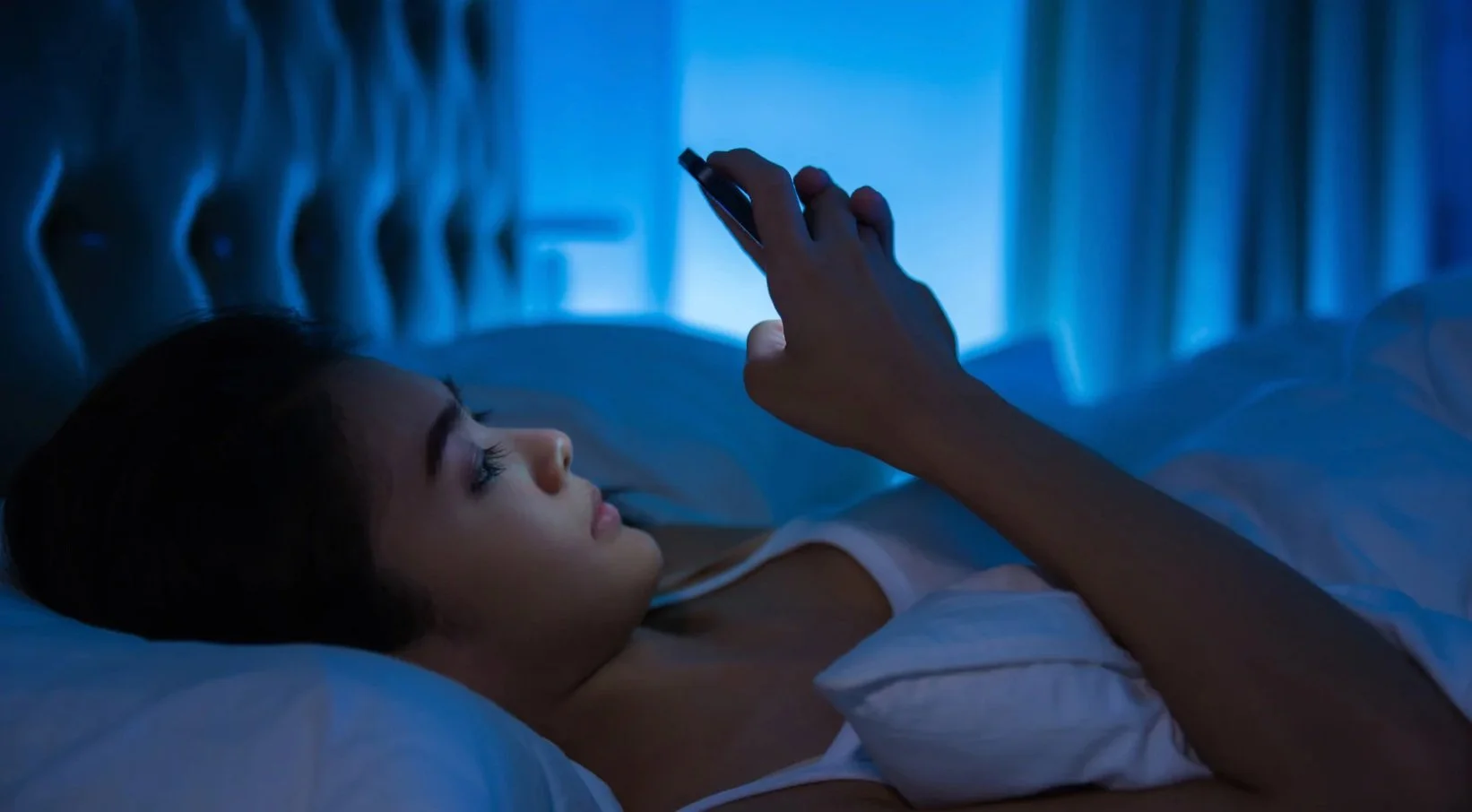Screen Time and Insomnia
We’ve all been there. Lights out is 30 minutes away and you’re laying in bed scrolling through your Facebook feed. Most of us even keep our cell phones beside our beds while we sleep. Isn’t that the best part about technology? Always being connected and never truly shutting down or logging off? Not so fast. You probably don’t even realize how your smartphone habits are affecting your sleep and your brain’s health.
What may seem like a harmless habit to you – jumping into bed and opening up your phone – can actually have a big impact on your overall health. Here's what you need to know.
Does Screen Time Really Impact Sleep?
Yes! Phone use and screen use does impact how you sleep, when you sleep, and the quality of your sleep.
There are a few different reasons that screen time impacts sleep. There is a more psychological reason and a more biological reason.
The Biological Reason: Melatonin Suppression and Blue Light
Image borrowed from Umizato.
The light that comes off of iPads, cellphones, computers and TV is blue light. Blue light suppresses our brains from producing melatonin - the hormone that makes us feel sleepy. While this light is helpful for sleep therapy to fix wonky sleep schedules and can help us feel more awake during the day, the use of cellphones and blue light screens at night makes it harder to fall asleep. This is no good if you need to get up for work and can’t fall asleep.
A Harvard Health study found that blue light shifts circadian rhythms by twice as much compared to other forms of light like green light - 3 hours of shifting vs 1.5 hours. Green light is found in sunlight and in common lamps and light bulbs. One interesting fact about blue light is that some newer LED lights use more blue light than traditional bulbs. Keep this in mind when shopping for lights for your bedroom.
Think about that though. Looking at your screen for a few hours before bed can impact your ability to sleep by three whole hours. It becomes a catch 22 because about 80% of teens in one PBS study admitted that they scroll on their phones in bed. so you can’t sleep - partly because of phone use - and then you use your phone when you can’t sleep which helps to push your sleep back further.
In fact, 4/10 Americans - almost 50%! - bring their phones to bed and play on them when it’s technically their bed time.
The Psychological Reason: Engaging Your Mind
Smart phones were designed to make us more productive and our lives easier. They’re designed to entertain us and provide information. But they were also designed to keep us on them and eat away our time. When it’s time to turn off the lights and go to sleep, the last thing our brain needs is more information and more entertainment. Checking your phone stimulates the brain so we are more active and awake - even just a quick check can engage your brain and prolong sleep.
The stimulation from cellphones gives us hits of dopamine. While dopamine is a natural hormone, occurs in everyday life and is not addictive, people can find it hard to not have that feeling. Cellphones are perhaps one of the easiest sources of dopamine kicks. Putting down that phone at night and giving your brain a rest can feel counter-intuitive to that feeling. But it’s so incredibly important.
Limiting phone use is a habit and it can be really hard. But if you try, we’re confident you’ll notice an improvement in your sleep!
How to Sleep Better With Screens
Here are some things to try to help you sleep at night when you use a screen.
Leave your phone outside the bedroom
We’ve said it once and we will keep saying it: don’t bring your cellphone into the bedroom. Not only will this stop you from scrolling at night to make it harder to sleep, it’ll improve the quality of your sleep, help you fall asleep faster, and reduces the temptation to stay up later.
Invest in an alarm clock or use a smart device to play music or do meditation. But leave the screen in the living room, kitchen or bathroom.
A great way to make sure you do this? Plug your phone charger in somewhere else in your house. then before bed, you plug it in and go to sleep without it.
It may be hard for a while but you will notice a difference. If you feel yourself feeling anxious without it in the bedroom, try swapping phone scrolling for another pre-bed activity. Reading, stretching, meditation or deep breathing can help you kick the habit.
Take a break before bed
We know that blue light shifts our sleep schedule by up to 3 hours. So stopping your screen use right before bed may not be enough. Try to give yourself at least an hour - ideally 2 or 3 hours - before bed where you aren’t using your phone, tablet or computer. That one hour could be used for your sleep routine, to read a book, to get yourself organized for the morning. Use that time to call a friend or maybe tidy up the house.
Screens are built into so much of our days, but there are plenty of activities that don’t include screens. Colouring, dot-to-dot drawing, reading, painting, stretching, walking, a card game, and playing with your pet are all great screen-free activities to built into your night.
Use blue light glasses or screen dimmers
There isn’t any 100% conclusive evidence that blue light glasses really help long term (they’re still pretty new) but some small studies and trials do show that they can reduce eye strain and help to limit the impact that blue light has on sleep. If you really can’t or don’t want to kick the habit of scrolling before bed or using a screen at night, try to use blue light glasses or change the tint of your screen. Many cellphones today have night-modes that make the light more yellow than blue.
Benefits of Limiting Cell Phone and Screen Usage
The impact of screens does also reach far beyond sleep. More and more studies are coming out that talk about the cell phones and social media has on us as a society. Increased anxiety, lack of present-living, difficulty concentrating, sleep deficits, relationship conflicts and more have all been connected to cell phone addiction and excessive cell phone use.
Cell phones and internet technology can be amazing things, helping us stay connected to loved ones, learn new things, access information, and expand our world view. But just like everything else, it’s important to be aware of excessive use of phones and internet time. More screen time means less time outdoors, talking to family and friends and experiencing physical things in life. While no one will ever stop using phones 100% — nor do you need to! — it’s important to be aware of a healthy balance and be purposeful of unplugging some times.
Blue Light, Sleep and Cell Phones
So where do we go from here? Shut your phone off one hour before bed and embrace a device-free activity like reading a book or meditating. Disconnecting for a better night’s sleep means a healthier, more balanced life overall. Small changes, bigger outcomes.



